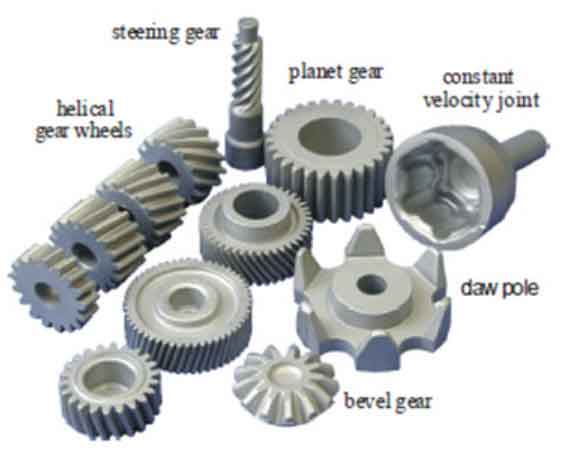Precision forging is a manufacturing process that has the power to transform metal alloys into engineering marvels. By leveraging the capabilities of precision forging, manufacturers can produce complex and high-performance components with exceptional strength, durability, and reliability. This article explores how precision forging enables the transformation of metal alloys into engineering marvels and the benefits it brings to various industries.

I. Material Selection and Customization:
Precision forging allows for the utilization of a wide range of metal alloys, including steel, aluminum, titanium, and superalloys. Each alloy possesses unique properties that can be tailored to specific application requirements. With precision forging, manufacturers can customize the composition of alloys to achieve desired mechanical properties such as strength, hardness, ductility, and corrosion resistance. This versatility in material selection and customization empowers engineers to design and create components with optimal performance characteristics, making them true engineering marvels.
II. Complex Geometry and Intricate Designs:
Precision forging enables the production of components with complex geometries and intricate designs that were once considered challenging or even impossible to manufacture. By using precision forging techniques, intricate shapes, internal features, undercuts, and thin sections can be accurately reproduced. This capability is particularly valuable in industries such as aerospace, automotive, and medical, where lightweight, highly efficient, and aerodynamic designs are essential. The ability to create such complex geometries allows for innovative and groundbreaking designs that push the boundaries of engineering.
III. Superior Strength and Durability:
Precision forging imparts superior strength and durability to metal alloys, making them suitable for demanding applications. The controlled deformation and grain refinement that occur during precision forging result in a fine-grained microstructure and improved mechanical properties. The forged components exhibit exceptional tensile strength, fatigue resistance, and impact toughness, ensuring they can withstand harsh operating conditions and heavy loads. This enhanced strength and durability make precision-forged components ideal for critical applications in industries like aerospace, automotive, energy, and defense.
IV. Weight Reduction and Performance Optimization:
Precision forging contributes to weight reduction and performance optimization in engineering applications. By precisely shaping the metal alloy, material can be distributed strategically to areas that require strength while minimizing material in non-critical areas. This optimization of material utilization allows for lighter components without compromising structural integrity, resulting in improved fuel efficiency, increased payload capacity, and enhanced overall performance. Precision-forged components offer an excellent balance between weight reduction and mechanical properties, making them essential for industries where weight savings directly impact performance and efficiency.
V. Cost Efficiency and Sustainability:
Precision forging provides cost efficiency and sustainability benefits in the manufacturing process. The ability to produce near-net shape or net shape components reduces the need for extensive machining, minimizing material waste and energy consumption. Precision forging also enables the use of less expensive alloys that can be transformed into high-performance components, resulting in cost savings without compromising quality. Additionally, the longevity and reliability of precision-forged components reduce the need for frequent replacements, leading to further cost savings and environmental sustainability.
VI. Wide Range of Applications:
Precision-forged components find applications in a wide range of industries, including aerospace, automotive, energy, defense, and more. In aerospace, precision-forged parts are used in aircraft structures, landing gear systems, and turbine engines. The automotive industry relies on precision-forged components in engine systems, drivetrain assemblies, and suspension systems. Precision-forged parts are also vital in energy generation and transmission equipment, such as turbines, generators, and power transmission components. The versatility and performance of precision-forged components make them indispensable in various applications where strength, durability, and reliability are critical.
Precision forging is a transformative process that turns metal alloys into engineering marvels. Through material selection and customization, complex geometries, superior strength and durability, weight reduction, cost efficiency, and wide-ranging applications, precision-forged components enable advancements in engineering and manufacturing. With continuous advancements in precision forging techniques and materials science, the future holds even greater possibilities for transforming metal alloys into remarkable components that drive innovation and shape the world of engineering.
